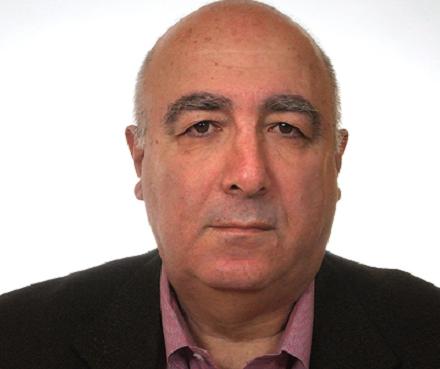
A number of articles and statements have been boosting our hopes that NATO membership is within Georgia’s grasp. There are several arguments made to this effect, some more serious than others, writes Tedo Djapharidze, Georgia’s former ambassador to the United States.
This rhetoric surely reflects a commitment to this objective, which no one disputes; but there are also reasons to believe that this rhetoric is also contributing to a false perception that the West, like a Deus ex Machina, will descent upon Georgia not merely as a security guarantor, but also as a peace-maker. Somehow, this fantasy seems more related to forthcoming legislative elections rather than “facts.”
Most public statements made to this effect point towards NATO membership as a possible “exit strategy” from the current strategic deadlock with Russia and the unacceptable for Georgia status quo. True, Rasmussen, in his recent visit to Georgia (November 2011), verified the fact that the alliance considers South Ossetia and Abkhazia as integral parts of Georgia. However, it requires a huge leap of faith in order to go from support towards the restoration of Georgia’s sovereignty, to the assumption that NATO would be willing and able to take a “hands on” approach on this issue. In sum, it would require us to believe that the Alliance would be willing to evoke article V. for “an aspirant member” and do something unprecedented, even during the Cold War, that is, to risk an open military confrontation with Russia. If evidence to the contrary were needed, it would suffice to refer to a comment made in a well known Washington blog on December 5th, The Daily Caller, which scrutinized and criticized Senator’s Rubio attempt to pass a consent vote through the Senate that would have hastened Georgia’s entry into NATO:
“This is not a triviality. Make no mistake: Bringing Georgia into NATO could lead to a new military conflict for the United States, which is why any move that would facilitate Georgia’s entry into the alliance should be publicly debated. Rubio’s attempt to push this through by unanimous consent — that is to say, without any formal debate or vote — is highly suspect and calls into question the senator’s better judgment.”
In any event, President Saakasvilli did not go as far as asking for direct salvation from NATO during the last Secretary General’s visit in November. Presumably, his request for a “NATO jacket” rather than an “umbrella” – publicly extended to Rasmussen during his visit – maybe interpreted as a request for security guarantees that would deter Russia from future incursions in Georgia’s sovereignty. But, even the President of Georgia was careful not to openly request that NATO forces deploy for the restoration of past incursions. And even this “modest” request from the Alliance to provide convincing deterrence for “an aspirant” NATO member vis a vis Russia was not met with a firm commitment. There is currently no convincing force on the North Caucasus that would suggest as much and no move that would point towards imminent deployment of troops. Of course, one may “reasonably hope” that NATO is willing to contribute to the “containment” or “freezing’ of the conflict between Russia and Georgia. However, the idea proposed by Giorgi Targamadze, Chairman of the Christian Democratic Party, that NATO will become the vehicle or “the instrument” for Georgia’s territorial restoration is, to say the least, far fetched.
It is of course theoretically possible that come September 2012, Georgia maybe granted a Membership Action Plan during the upcoming NATO Summit in Chicago. However, what is possible is not probable. For one thing, it is still unclear which NATO members would move with a thrust to endorse the Georgian candidacy and reverse the Alliance’s initial assessment of 2008. Secondly, leaving aside the fact that NATO allies would not like to add an open confrontation with Russia at this strategic and economic point in time, there are also a number of “technicalities” that Georgia has yet to address. For instance, membership entails the fulfilment of certain political criteria, including the assessment that the “aspirant member” has impeccable democratic credentials, that is, a fact that has been questioned by a number of international monitors, not least NATO Parliamentary Assembly reports on Georgia.
Even if we anticipate MAP as the beginning of a process that would ensure the consolidation of democratic transition in Georgia, the question at hand is whether there are “good reasons” to believe this will happen in September. Are there any firm commitments or open endorsements that justify such expectations? And since legislative/Presidential elections in Georgia will take place prior to September 2012, one should hope that the people of Georgia will be told the truth rather than being enticed into a show of unfounded promises. Few would disagree that NATO membership is a desirable objective; but, this is the end of the road not the beginning of any solution for the restoration of national sovereignty. Unfortunately, Georgia must rely, primarily, on its own diplomatic efforts until NATO membership is secured. And from this point of departure, a public debate may and perhaps should begin.
Tedo Djapharidze
Former Georgian Ambassador to United States
Former Minister of Foreign Affairs of Georgia

